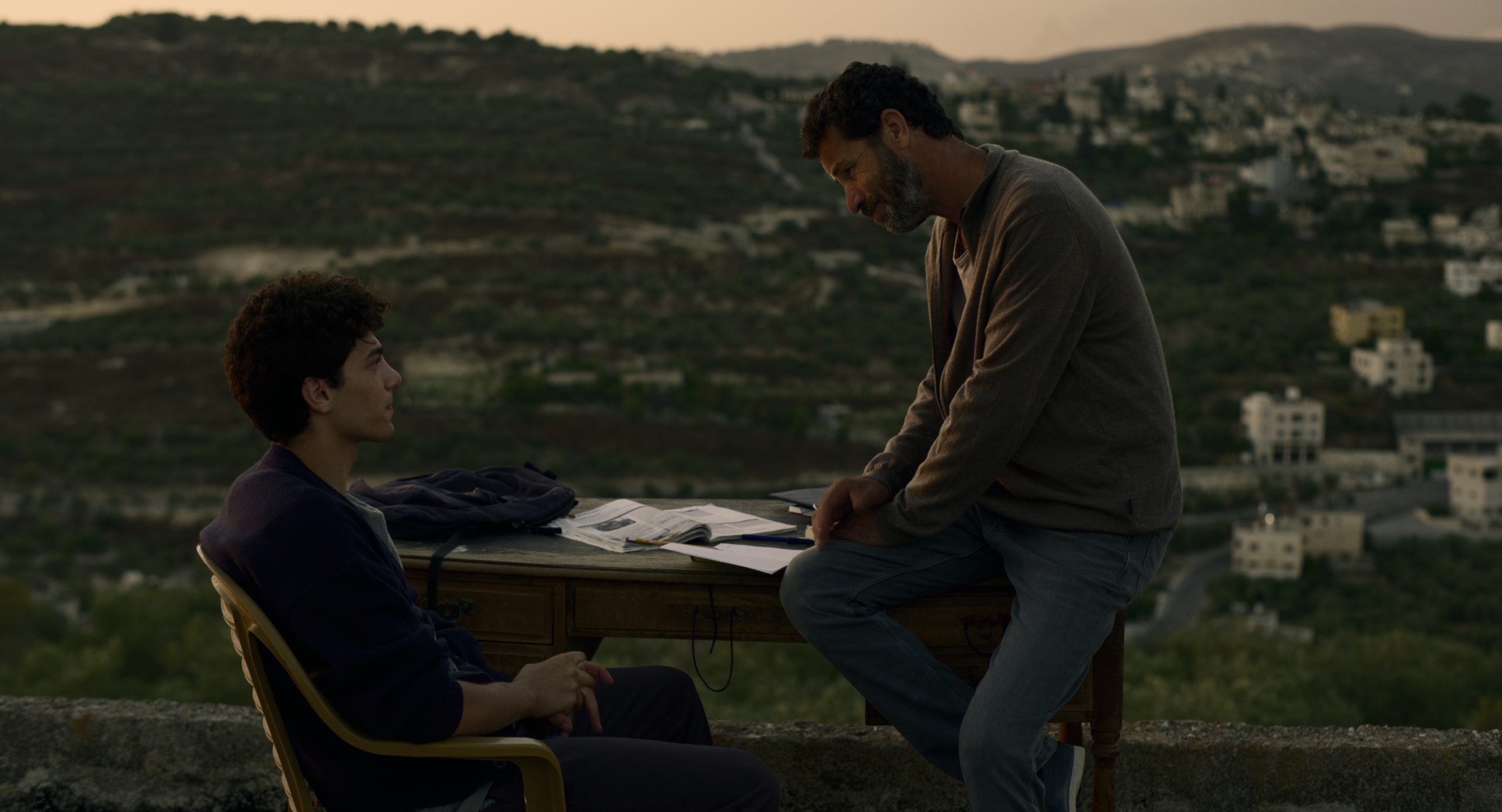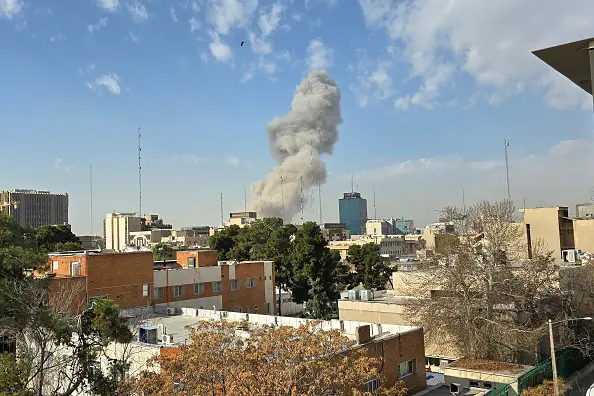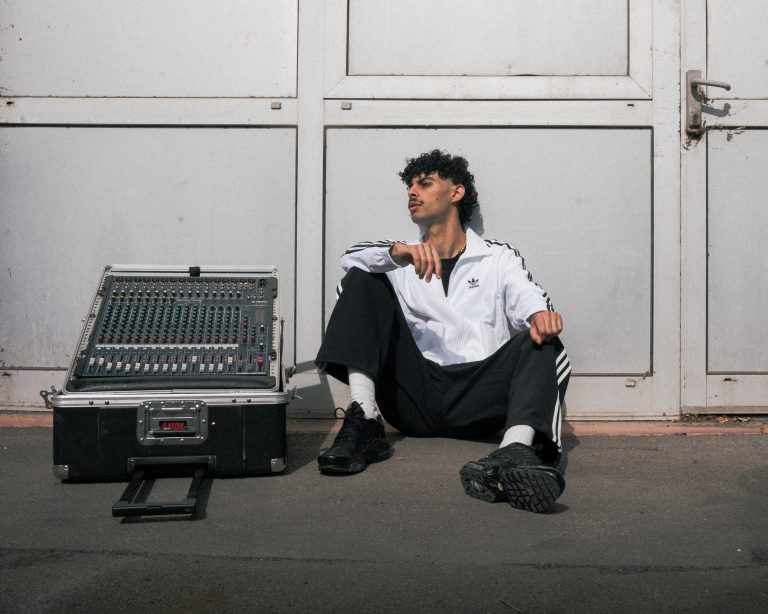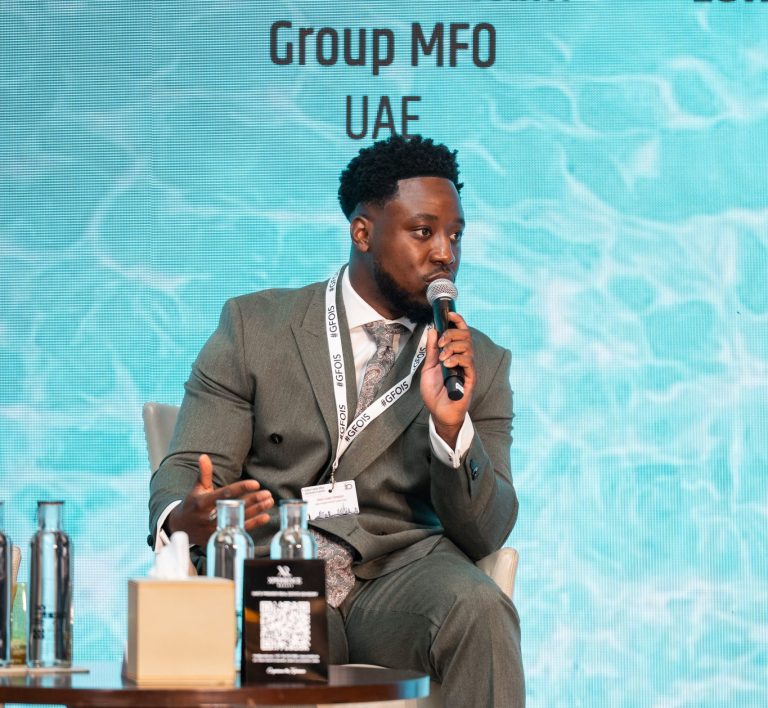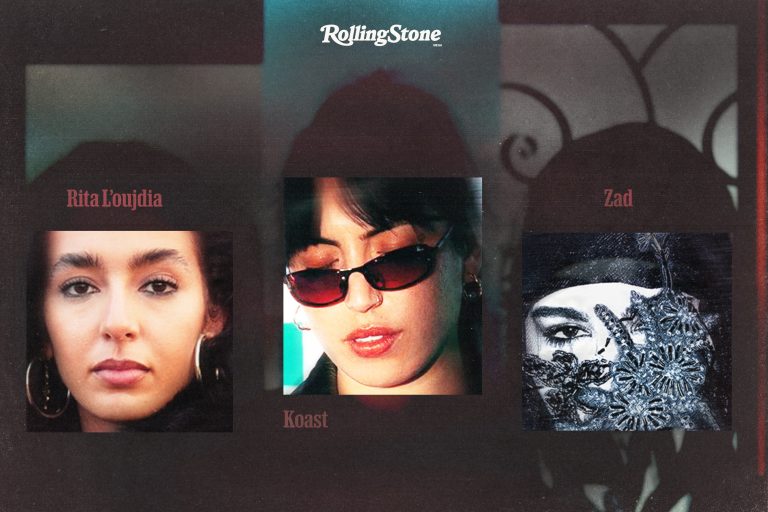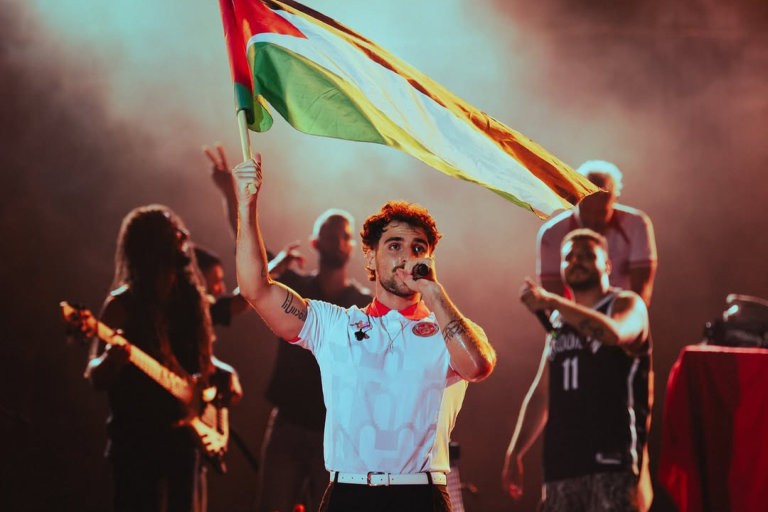If you are of Arab, Middle Eastern or North African descent, when was the last time you saw yourself in a Hollywood production? For many, Aladdin is the title that comes to mind, Disney’s 1992 animated feature, set in the fictional Agrabah and riddled with stereotypes and cringe-worthy takes on Arab culture. Since then, with the 2019 remake of the former aside, there has been little to no growth on how Arabs and those from the MENA region are seen in the mainstream.
Representation of Middle Eastern, North African, and Arab talent hovers at a dismal 2.5% of speaking roles across 1,500 broadcast, cable, and streaming shows, according to Nielsen—proof that even in the age of diversity dividends, characters from the region seem to remain all but invisible. And when Arabs do break through, they’re reduced to props of fear: caricatures yelling in a gibberish that isn’t quite Arabic, with long beards and bushy eyebrows, with the intent to cause harm and of course, terror.
Arab representation in Hollywood is reduced to villainous shadows or illustrative clichés, never as the protagonists of their own narratives.
That void is exactly what brothers Badie and Hamza Ali set out to confront when they founded Watermelon Pictures, an independent production company rooted in the belief that Arabs, but especially Palestinians, deserve more than scraps of visibility. As movie lovers themselves, the Ali brothers know firsthand the ache of seeing themselves flattened into caricatures or erased altogether.
Watermelon Pictures is their antidote, a reclamation of narrative power that insists Arab stories can be messy, joyful, rebellious, tender, and deeply human. By centering Arab characters as full protagonists rather than stereotypes, the brothers aren’t just building a company; they’re building a cinematic counter-archive that challenges Hollywood’s historic refusal to make space. They’re planting the seeds for a fruitful future for Arabs and minority communities in Hollywood.
Badie and Hamza Ali saw the need for a Palestinian-run production and distribution house in the aftermath of October 7, 2023. They instantly recognized how powerful a counter narrative to mainstream conversations around Palestine could be- and when they posted the instagram tease for the company on instagram and it amassed 8 million views in a matter of days, they knew others felt the same way.
“Somebody called us the Palestinian Avengers,” said Hamza. “That’s not what you think it is, that’s a lot of pressure.”
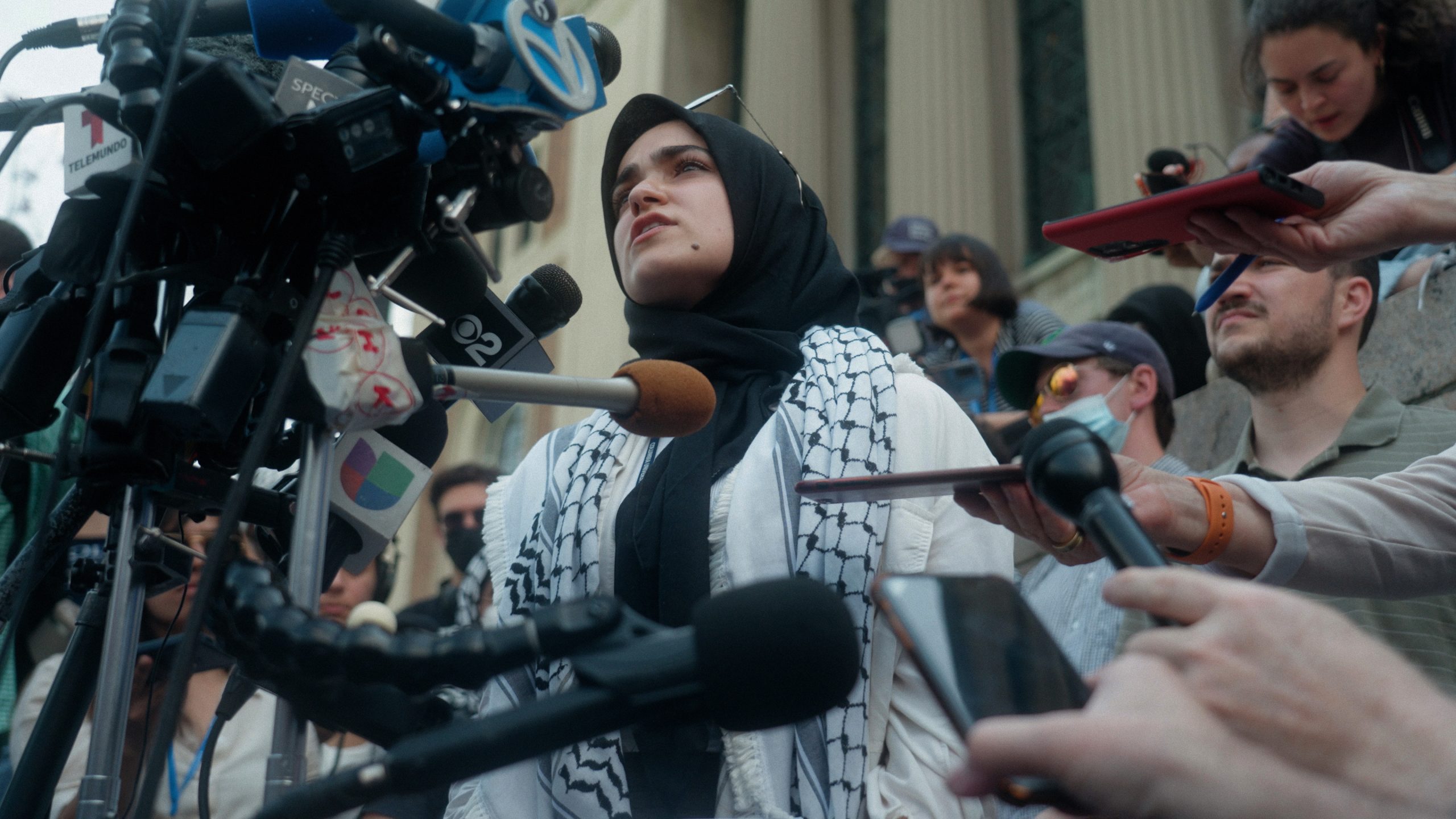
Now, nearly two years since the launch, Watermelon Pictures has been behind some of the biggest Palestine-related releases in the mainstream. From Anwar Hadid’s directorial debut Walled Off, to From Ground Zero, executively produced by Michael Moore. Every release reminds audiences of the context in which we all exist today; that Palestine is under occupation and that Palestinians exist, resist and thrive.
To truly understand the importance of a production house like Watermelon Pictures, helmed by Palestinians and with Palestine in mind, one need just take a closer look at their March 2025 release, The Encampments. The documentary followed a crew of young organizers on Columbia’s campus as they unknowingly sparked a global movement in protest to the onslaught of Palestinians in Gaza.
The movie was intended for a fall release but production faced a truly unforeseeable situation when one of the protagonists of the film, Mahmoud Khalil, was taken into custody by ICE agents, the first of many illegal and troubling arrests made by the newly inaugurated Trump administration. “Once we decided we were going to launch [the film,” says Hamza, “We were in theaters [around] five days later. Really unprecedented speed in terms of a release.”
With Mahmoud Khalil in the center of a sensationalized media whirlwind, The Encampments proved the importance of a powerful counter narrative. “He was being branded on all media as a terrorist,” says Hamza, “But then we had interview clips that showed exactly who he really was, and it was a complete counter narrative to everything.”
The production house faced its own obstacles in trying to release the film. “At first, Meta and Google wouldn’t take our ads,” says Badie. “They thought they were campaign ads. And when we told them, ‘no, it’s a movie,’ they still refused, saying it’s discriminatory.” Badie added some of the theaters received threats for showing the film and their official Watermelon Pictures Linkedin page was deactivated shortly after posting the trailer. “All these obstacles being said, we still did tremendous numbers. It gave us more motivation. It was the only counter narrative being shared about the encampments and the students.”
This summer, Watermelon Pictures is celebrating two very different but very important releases. The first, Hind Meddeb’s Sudan Remember Us, takes audiences back to Khartoum in 2019 as protests against the 30-year rule of President Omar al-Bashir. The film zooms in on the role of young people and particularly young women in Sudan’s uprising. It’s a stark reminder, much like The Encampments, of the power of a society’s youth in the face of longstanding oppression and tyranny.
The Glassworker, the second summer release, is an animated epic, the first ever Pakistani animated feature. Directed by Usman Riaz, the film is beautifully handdrawn, evoking anime legends like Studio Ghibli. But don’t let the medium fool you – the movie juggles themes of classism and war, weaving the storytelling with mesmerizing ease.
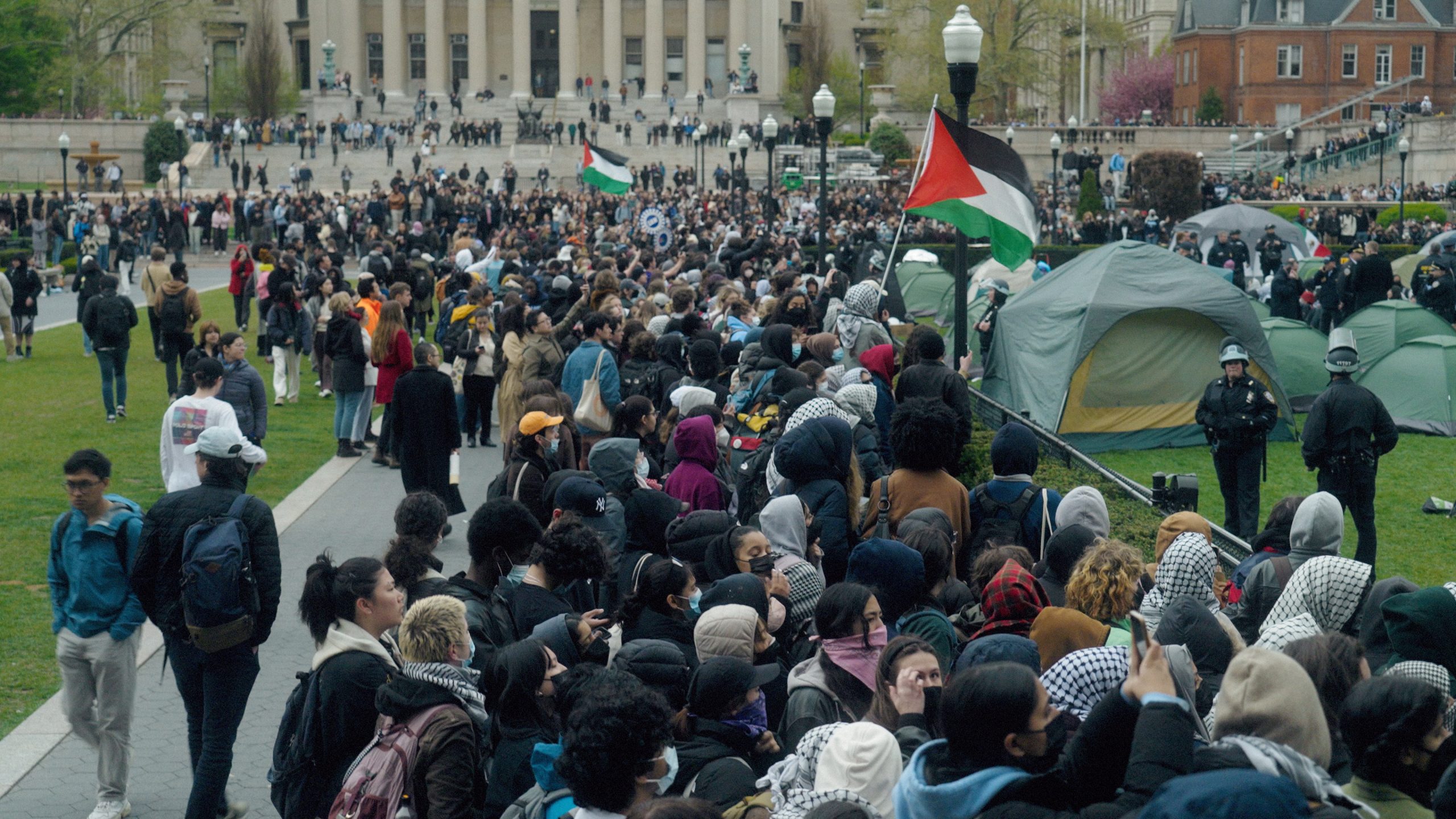
Putting Sudani and Pakistani art on their roster might seem like a detour from Badie and Hamza’s original mission. But the duo insists that these projects, and many others not from Palestinian artists or featuring Palestinians, are still very much aligned with the production house’s mission.
“We’re thinking of the global South, right? We’re thinking of underrepresented voices. Sudan is going through hell. And you can’t have a better festival circuit than Sudan Remembers Us. It’s playing every major [fesitval], and sweep sweeping awards. And so it was a no brainer for us. The Glassworker was Pakistan’s submission to the Academy Awards. And it’s an anti war film, so both films just line up so well [with our mission].”
But Hamza and Badie promise there is even more to come, with the brothers touting the upcoming films as the biggest projects the production house is involved in yet, perhaps even “the biggest in Palestinian history.” .
The first in the pipeline is Cherien Dabis’ Sundance entry All That’s Left of You, a film about a Palestinian couple facing a difficult decision. Written and directed by Annemarie Jacir, Palestine 36, is an epic historical drama, following the Palestinian revolt against British rule in the 1930s. And finally, The Voice of Hind Rajab blends real-life recordings and dramatic storytelling to tell the story of Hind Rajab, a Palestinian girl killed by Israeli forces and the first responders who tried to save her. Kaouther Ben Hania, the director and two-time Academy Award nominee, will premiere the film in Competition at the Venice Film Festival on September 3, and then head to the Toronto International Film Festival for its North American debut. “It’s all set in the Red Crescent control room and done with Hind’s mother’s blessing. The film handles the situation very delicately but with the knowledge, of course, that this is a story that has to be told.”
With these various films, the production house is beginning to diversify its projects. First, for podcast listeners, Watermelon Pictures produced The Seeds, the empowering series hosted by creative director Alana Hadid. Next, the company hopes to tackle streaming with Watermelon+. The platform, which launched in May, already houses foundational Palestinian films like 5 Broken Cameras and Omar. The platform’s tagline says it all: Stream films that matter.
So what makes a project appealing? “We have an acronym, it’s called RIPE,” Badie says. “Representation, Impact, Popular appeal and Earnings potential. So who is the movie representing? It should work to amplify a community or community. Does it have reach? And of course, it does have to make money, we need funds to continue to do this kind of work in the future.”
“And, obviously, it has to be a good film.”

